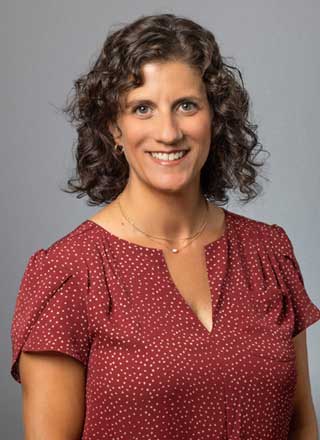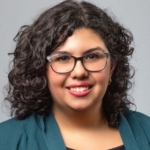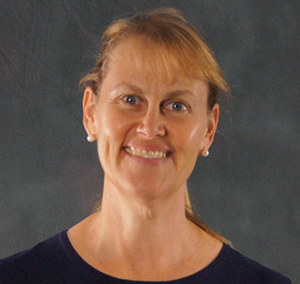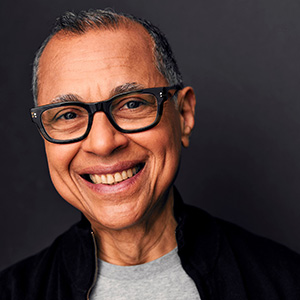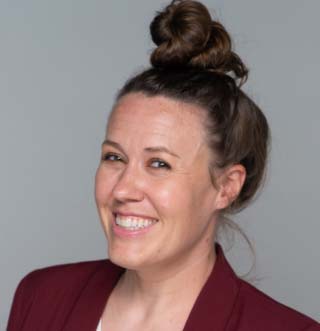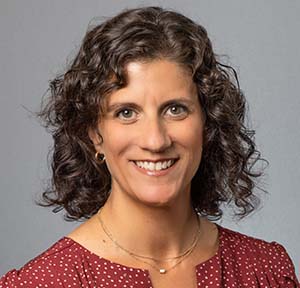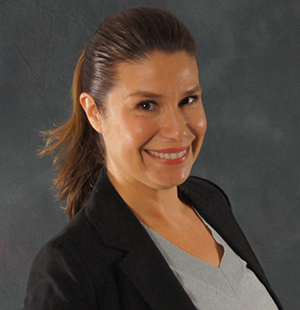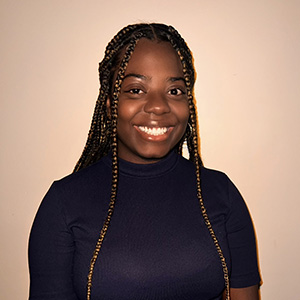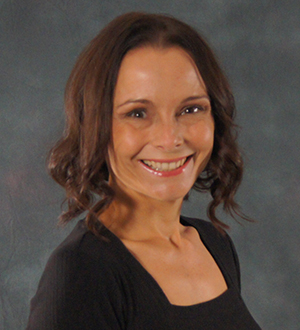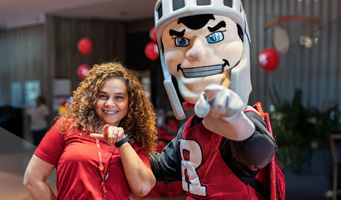Improving Communication for All: Launch Your Career with Our Speech-Language Pathology Program
Our program emphasizes service delivery for multiethnic, socially diverse populations – including dialectal speakers of English and bilingual/multilingual individuals – with speech, language, communication, and swallowing disorders within an interdisciplinary healthcare context.
Why Study Speech-Language Pathology at SHP?
.Our MS-SLP students spend their first three semesters learning together in small, in-person classes, while also treating clients in our pro bono RU SLP Clinic. Our clients come to us for assistance regarding speech production, language, voice, stuttering, feeding, swallowing, cognition, and AAC, and services from our students help improve their communication and quality of life. MS-SLP students also complete two full-time extern placements in a wide variety of medical, educational, and private practice settings, so they graduate prepared for their Clinical Fellowship year!
$80,480
* average salary of an SLP graduate
* U.S. Bureau of Labor and Statistics
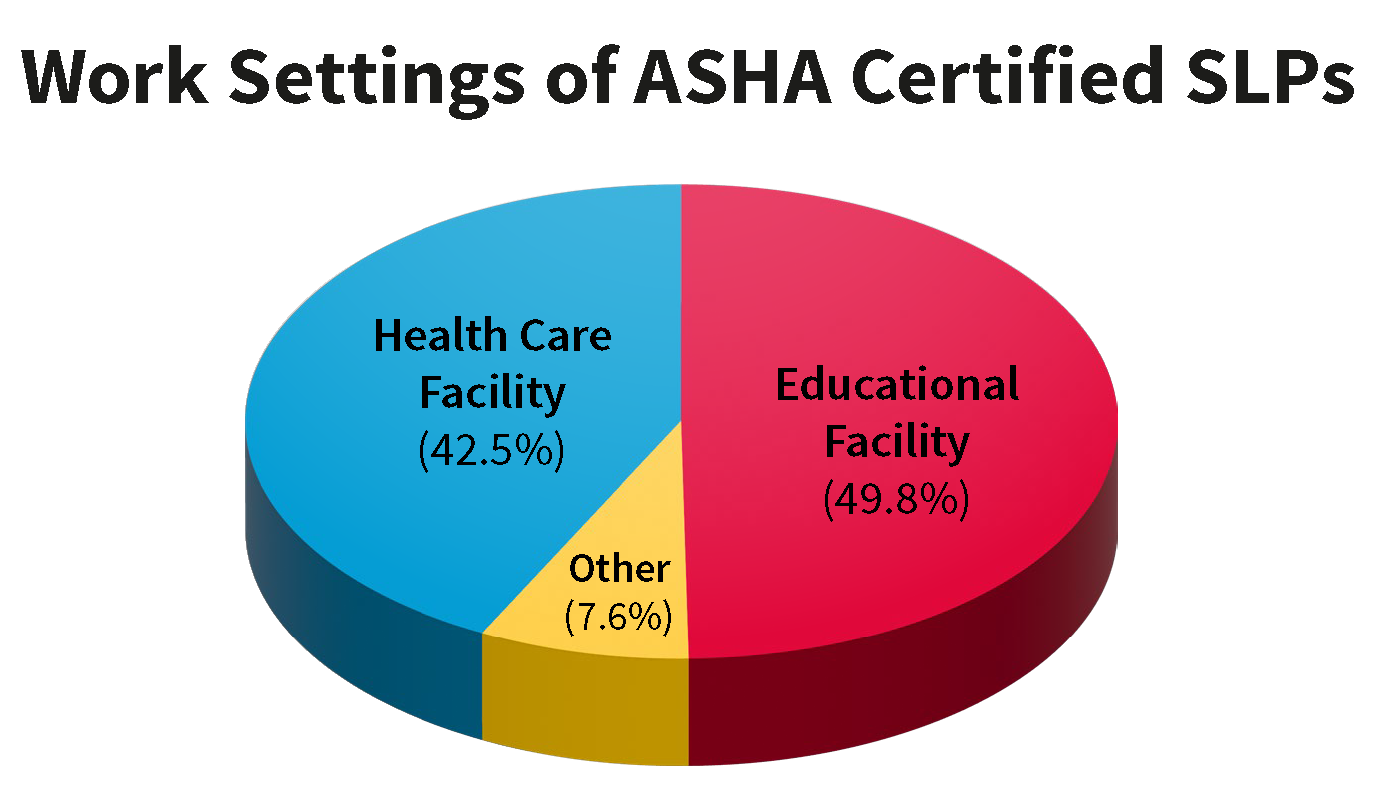
Program Highlights
By integrating three themes – inter-professional practice, diversity, and health care – throughout the curriculum, the program graduates students who have the knowledge and clinical skills relevant to cultural and linguistic diversity across the lifespan within inter-professional contexts.
- An academic, clinical, and interprofessional curriculum steeped in scientific information and clinical procedures regarding socially, culturally and linguistically diverse populations, including both dialectal and bilingual/multilingual speakers.
- Academic education and clinical training with socially, and multiethnic populations across the lifespan.
- Students who meet additional requirements will have the opportunity to be recognized with Bilingual Competency Recognition.
CEU Offerings for SLPs
Rutgers MSSLP program is proud to offer ASHA-approved continuing education (CE) opportunities for licensed speech-language pathologists.
Kiana (Kage) Gourdine
M.S. 2024, CCC-SLP
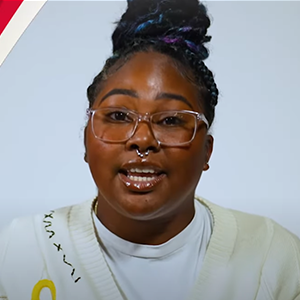
“I believe that success starts here at SHP because they set you up for success.”
 Watch Kiana
Watch Kiana
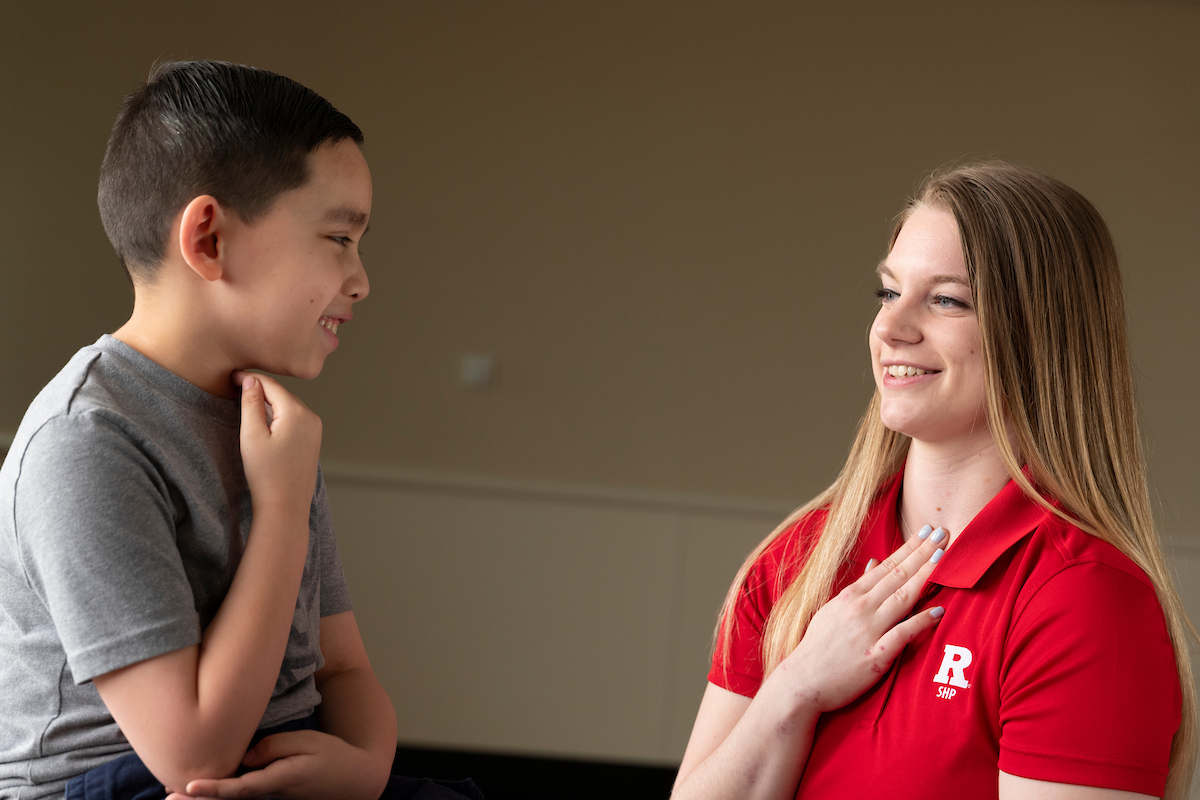
Learning Beyond the Classroom
Rutgers Speech-Language Pathology Clinic
A pro bono Speech-Language Pathology Clinic serving the Newark community
Our trained graduate-student clinicians provide targeted services under the supervision of Clinical Educators, who are ASHA- certified, licensed speech-language pathologists. Children and adults from diverse cultural and linguistic backgrounds can receive zero-cost assessments, diagnosis and therapy.
Program Overview
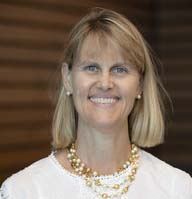
Celeste Domsch, Ph.D.
The M.S. in Speech-Language Pathology (MSSLP), located in Newark on the Rutgers Health campus, is a 65-credit, entry-level program that aims to prepare students to prevent, evaluate, diagnose, and treat speech, language communication, and swallowing disorders.
This program, which is completed over five consecutive semesters (two years), emphasizes service delivery for multiethnic, socially diverse populations – including dialectal speakers of English and bilingual/multilingual individuals – with speech, language, communication, and swallowing disorders within an interdisciplinary healthcare context.
Eligible students have the option of completing the Bilingual Competency Recognition (BCR). With a curricular emphasis on interprofessional services for communicatively-impaired ethnosocially diverse populations, our MSSLP program trains students to work with both child and adult caseloads in our complex multidisciplinary healthcare settings serving our growing multiethnic communities.
The program’s mission aligns with the institutional and school missions to prepare students using a cross-disciplinary collaborative approach for evidence-based clinical services to improve the lives of those who reside in New Jersey and beyond.
The Speech-Language Pathology program at Rutgers University has three major program goals:
Program Goal 1: Excellence in academic education and clinical preparation. The academic and clinical curriculum is based on state-of-the-art scientific information and clinical procedures.
Objectives:
- Infuse the curriculum with content regarding multiculturally diverse populations, particularly dialectal and bilingual/multilingual influences on speech, language, and communication skills.
- Ensure the curriculum contains information regarding interprofessional education and that students have opportunities for interprofessional practice in the clinical setting.
- Incorporate contemporary principles of clinical practice in the assessment and management of speech, language, communication, and swallowing disorders within a medical setting.
- Prepare students for American Speech-Language-Hearing Association certification, professional New Jersey state licensure, and the New Jersey Department of Education speech-language specialist certification.
Program Goal 2: Excellence in Faculty and Student Scholarship. Academic and clinical faculty are dedicated to professional scholarship and increasing student participation in scholarship.
Objectives:
- Produce faculty scholarship to promote the national ranking of the program.
- Actively engage students in clinically relevant research and problem-solving.
- Foster student scholarship through implementation of EBP in clinical and professional venues.
Program Goal 3: Expand community visibility and clinical opportunities. The SLP Program at Rutgers University is committed to addressing the clinical needs in speech, language, communication, and swallowing in the Newark, NJ community and beyond.
Objectives:
- Offer affordable, accessible, and quality clinical services to the Newark community and beyond.
- Provide continuing education opportunities to practicing clinicians.
- Engage community members in program development and educational strategies.
Goal: Recruit, mentor, and retain high-quality academic and clinical faculty to provide students with cutting-edge didactic and clinical
education.
Strategic Goal 2. MEETING THE COMPLEX SERVICE NEEDS OF GROWING DIVERSE POPULATIONS
Goal: Create a clinical-academic education program that will provide students with clinical experience and academic coursework related to
services for ethno-socially diverse populations across the lifespans in interprofessional contexts.
Strategic Goal 3: DEVELOPING A DIVERSE PROFESSIONAL WORKFORCE FOR A DIVERSE SOCIETY
Goal: Recruit, mentor, and retain a high-quality student body who meet or exceed the admission requirements from a variety of socio-ethnic backgrounds.
Strategic Goal 4: ASSESSMENT FOR COMPLIANCE, EXCELLENCE, AND INNOVATION
Goal: Review and revise the MSSLP Program’s Strategic Plan.
Strategic Goal 1. SOUND ACADEMIC AND CLINICAL TRAINING
Goal: Recruit, mentor, and retain high-quality academic and clinical faculty to provide students with cutting-edge didactic and clinical education.
The MS-SLP Program has 6 full-time faculty and 6 adjunct faculty who provide high-quality academic and clinical education to our students.
Our full-time faculty include:
- Dr. Jose Centeno, named an ASHA Fellow in 2024
- Dr. Michelle Chang, who published a study on Korean-speaking children with dysarthria in JSLHR in 2024
- Dr. Celeste Domsch, current Editor-in-Chief of Group 4 Perspectives of the ASHA Special Interest Groups
- Stephanie Hubbell, Recipient of the Rutgers SHP Excellence in Teaching Award in 2023
- Kelly Ann Peña, President of the ASHA Hispanic Caucus
- Dr. Kristen Victorino, recipient of the NJSHA Distinguished Professional Service Award in 2024
Our adjunct faculty include:
- Kira Medina-Tiencken, Bilingual CE and Private Practice Owner
- Giovanni Paul, Bilingual CE and SLP at Bruce Street School for the Deaf
- Ry Pilchman, Recipient of the ASHA Distinguished Early Career Professional in 2022; Published book chapters on transgender-affirming voice and communication
- Nicole Raia; Senior Audiologist at University Hospital; Member of the ASHA Government Affairs and Public Policy Board
- Nicole Surizon, Experienced CE and SLP at Children’s Specialized Hospital
- Jenn Valdez, Experienced CE and SLP at Children’s Specialized Hospital
Strategic Goal 2. MEETING THE COMPLEX SERVICE NEEDS OF GROWING DIVERSE POPULATIONS
Goal: Create a clinical-academic education program that will provide students with clinical experience and academic coursework related to services for ethno-socially diverse populations across the lifespans in interprofessional contexts.
Diverse Populations
- Addressed explicitly in SPLP 5110: Foundations of Ethnoracial-Social Diversity and Public Health for SLP Practice, which prepares students for additional diversity content and clinical experiences in all subsequent coursework and clinical practica
- Treated in our pro bono RU-SLP Clinic, where we see clients speaking a wide variety of languages, coming from diverse backgrounds, and who access our Transportation Fund to travel to services
- Treated in our externship sites, including Bruce Street School for the Deaf, St. Joseph School for the Blind, Children’s Specialized Hospital, University Hospital, and the Kessler Institute for Rehabilitation, among many others
- Ongoing faculty research projects related to diverse populations, including Dr. Centeno’s work with bilingual people with aphasia, Dr. Victorin’s REACH grant with the Newark Board of Education schools, and Dr. Chang’s work with Korean-speaking children
Interprofessional Experiences
- Three IPE events yearly with Rutgers Health
- Participants include students from New Jersey Medical School, School of Dental Medicine, DPT, OTD, Nursing, Pharmacy, Clinical Lab Sciences, Social Work, and the Physician Assistant program
- Scenarios include a CVA patient, a veteran with complex health needs, and a Hospice case
- Students complete Team STEPPS in interdisciplinary groups
- IPP opportunities in the RU-SLP Clinic
- Translation and Interpretation collaboration with Rutgers Newark
- Social Work internships
- OTD Capstone projects
- Summer Head Injury Clinic, where MS-SLP students co-treat with DPT and OTD students
Strategic Goal 3: DEVELOPING A DIVERSE PROFESSIONAL WORKFORCE FOR A DIVERSE SOCIETY
Goal: Recruit, mentor, and retain a high-quality student body who meet or exceed the admission requirements from a variety of socio-ethnic backgrounds.
- First cohort of 17 graduated in May 2023
- Second cohort of 21 graduated in May 2024
- 100% on-time graduation rate to date
- Our NBASLH group won University Affiliate of the Year in 2024
- Our students have been/are bilingual in Albanian, Arabic, Haitian Creole, Korean, Russian, Spanish, and Tagalog
- Our students come from the LGBTQ+ community and participate in the SHP student organization Prideful Futures in Healthcare, with Stephanie Hubbell as the Faculty Advisor
- Our students have presented at ASHA, NBASLH, NSJHA, and Brain Injury Alliance of New Jersey conferences
- Our students have been selected for the ASHA Minority Student Leadership Program
- Our students and graduates hold undergraduate degrees from a wide variety of institutions
- The College of New Jersey, CUNY—Staten Island, Florida State, Georgetown, Indiana University, Iona, Ithaca, James Madison, Kean, LaSalle, Montclair State, NYU, Old Dominion, Penn State, Rutgers, Stockton, SUNY—New Paltz, Temple, Towson, St. John’s, University of Colorado—Boulder, University of Delaware, University of Maryland, University of Mississippi, University of Pittsburgh, University of Rhode Island, Western Washington University, and William Paterson
Strategic Goal 4: ASSESSMENT FOR COMPLIANCE, EXCELLENCE, AND INNOVATION
Goal: Review and revise the MSSLP Program’s Strategic Plan.
- MS-SLP faculty hold retreats annually, when the Strategic Plan is reviewed and revised as needed
- Data are regularly collected from multiple sources, including course evaluations, first-year student surveys, graduate surveys, exit interviews, Advisory Board input, clinic clients and caregivers etc, and analyzed by MS-SLP faculty for ongoing program improvement
We are so pleased to have an Advisory Board that is made up of professional members, community members, and alumni members. The Advisory Board meets twice per year to hear from the Program Director and Director of Clinical Education, and to offer input.
Our 2025-2028 Advisory Board roster is below.
Christine Boardingham, MEd, CCC-SLP, University Hospital
Lauren DePietro, MS, CF-SLP, Universal Institute
Nicole Ford, MS, CCC-SLP, Newark Board of Education
Bethany Hill, MS, CF-SLP, Believe in Me Developmental Therapy
Dana Pantoja
Isa Rosario
Linda Tucker-Simpson, MS, CCC-SLP, ASHA Fellow
Jan Forster Ward, MS, CCC-SLP, University Hospital
Susan Wozny, MS, CCC-SLP, Newark Beth Israel
Rutgers Health Strategic Plan: One RBHS: The Way Forward
Questions? Contact us directly at: slp@shp.rutgers.edu.
Accreditation
The Master of Science (M.S.) education program in speech-language pathology {residential} at Rutgers University is accredited by the Council on Academic Accreditation in Audiology and Speech-Language Pathology of the American Speech-Language-Hearing Association, 2200 Research Boulevard, #310, Rockville, MD 20850, 800-498-2071 or 301-296-5700.
Council on Academic Accreditation in Audiology and Speech-Language Pathology (CAA)
2200 Research Boulevard, #310,
Rockville, MD 20850,
800-498-2071 or 301-296-5700
Admission Criteria
Academic Pre-requisites: Completion of prerequisite foundational courses. Applicants with prerequisite coursework taken more than 10 years before the initiation of the graduate program should contact the Program Director regarding their application.
- Anatomy and Physiology of the Speech and Hearing Mechanisms: An introduction to the anatomy and physiology of the systems and processes involved in speech production, with a focus on the respiratory, phonatory, articulatory, resonatory, and nervous systems.
- Introduction to Audiology: Introduction to the profession and practice of audiology through an overview of anatomy and physiology of the auditory system, physical properties of sound relevant to hearing assessment, techniques for hearing assessment, and auditory disorders
- Phonetics: Introduction to phonetics, the study of the production of speech sounds and their acoustic characteristics. Students will learn to identify, classify, and transcribe sounds from a variety of languages
- Speech and Hearing Science: An overview of speech production, including acoustics and physiology, as well as speech perception
- Speech and Language Development: How speech and language are acquired by young children
- Speech, Language and Communication Disorders across the Lifespan: An introduction to the study of communication and its disorders across the lifespan. An overview of the profession of the profession of speech-language pathology, its history, the types of disorders encountered, their evaluation and treatment.
Additional coursework includes three (3) credits in each of the following areas: biological science, physics or chemistry, statistics, and
social/behavioral sciences
Documentation of 25 hours of guided observation with an ASHA certified SLP who has met the 2020 ASHA certification
standards for providing clinical instruction and supervision to individuals preparing for ASHA certification.
Admission Requirements
- Application to the MSSLP program must be submitted through the Communication Sciences and Disorders Centralized Application Service (CSDCAS) at: https://csdcas.liaisoncas.com/. (Deadline to apply is February 2)
- Minimum GPA of 3.0 from an undergraduate program accredited in the U.S. or its equivalent
- A personal statement (Limit 500 words) that responds to the following prompt:
Please describe a specific skill that you have developed during your education to date and explain how this skill will help you in the MS-SLP program. - Pre-requisite courses (transcripts, showing proof of completion, must be submitted by JUNE 30)
- Clinical Hours (documentation of completed hours of observation with an ASHA-certified SLP)
- Two letters of recommendation
- Students who have graduated from a foreign institution must submit a WES evaluation of their coursework and TOEFL scores along with an official transcript.
- Resume
NOTE: We do not require GRE scores
IMPORTANT UPDATE: We are flexible with the Guided Observation requirement. If students have not completed the guided observation requirement, we will have time built into the first semester for students to complete this requirement. If you do have a portion or all 25 hours of guided observation, please submit a document with the following information:
- Full name of the SLP you observed
- Signature by the SLP you observed
- ASHA number of SLP you observed
- Name of the facility where the guided observation took place
Tuition and Fees
For Tuition and Fees, please see the Graduate Tuition and Fees table.
(Scroll down to 2024-2025 Rutgers Health Tuition and Fee Rates and click on School of Health Professions)
Curriculum
The MSSLP is a full-time program.
Year 1
| Course/Description | Course # | Pre/Co-Requisites | Credits |
|---|---|---|---|
| Foundations of Ethnoracial-Social Diversity & Public Health for SLP Practice This course will address ethnoracial and social diversity foundations of language, communication, and speech with an emphasis on minority groups and bilingual/multilingual and dialectal speakers of English in the U.S as well as health determinants and healthcare disparities, particularly in minority groups in multiethnic communities. |
SPLP 5110 | 3 | |
| Language Disorders in Young Children This course will focus on the etiology, characteristics, assessment, and treatment of language impairment in young children, including cognitive/processing deficits. Disordered language in young bilingual children and children who speak dialectal varieties of English and IPP considerations in the clinical services for language-disordered will also be discussed. |
SPLP 5131 | 3 | |
| Neuroscience for SLP Practice This course will focus on a foundational overview of the neuroanatomical bases and neurophysiological processes involved in unimpaired and impaired language, cognition, speech, and swallowing functions, including neurodiagnostic techniques. |
SPLP 5140 | 2 | |
| Clinical Methods and Procedures The course will provide an orientation to clinical practice in speech-language pathology across the lifespan. The clinical process is presented as a construct which interfaces interpersonal dynamics with best evidence-based professional practices. A decision-making continuum, including IPP and cultural competence considerations, is applied to the interpretation of individual client needs as a basis for developing goals, planning treatment procedures, documenting treatment, and planning for referral and/or discharge. |
SPLP 5150 | SPLP 5169 | 2 |
| SLP Practicum & Seminar I This laboratory course provides observation hours and involves students in an initial experience under supervision in providing services to individuals with communication disorders at the RU-SLP Clinic or community clinical sites. |
SPLP 5169 | SPLP 5150 | 1 |
| Research Principles for Evidence-Based Clinical Practice in SLP This course will provide students with an overview of empirical methods in speech-language pathology research as a foundation to foster the critical appraisal of reported research evidence and its applications and implications to clinical practices in the profession. Specifically, the course will focus on the evaluation and design of different types of research methodologies, such as descriptive (e.g., case study, developmental, qualitative, surveys), exploratory (e.g., correlational, differential), and experimental (e.g., single-subject designs, randomized control trials, treatment efficacy studies). Research issues pertinent to ethnoracial minorities with communication disorders will also be discussed in the course. |
SPLP 5320 | 3 | |
| Voice Disorders This course will cover etiology, pathology, assessment, and treatment of voice disorders in children and adults. IPP considerations regarding clinical services for the voice-disabled populations will be discussed. |
SPLP 5350 | SPLP 5140 | 3 |
| Total Semester Credits | 17 | ||
| Course/Description | Course # | Pre/Co-Requisites | Credits |
|---|---|---|---|
| Adult Cognitive Communication Disorders This course will concentrate on the etiology, neuroanatomical bases, and classification of the pathologies associated with acquired language-cognitive-communicative symptoms from traumatic brain injuries and the dementias as well as the evaluation and treatment approaches employed when working with adults with these lesions and impairments, including clinical factors pertinent to multiethnic adult populations. IPP considerations regarding clinical services for this population will be discussed. |
SPLP 5210 | SPLP 5140 | 3 |
| Language & Literacy Disorders in School-Age Children This course will explore language disorders of school-age children and adolescents, including students that are bilingual or dialectal speakers of English. Students will study the social, cognitive, and linguistic aspects of language impairment and differences. The interplay of language and literacy and its implications for intervention in this age group will be examined. Students will practice conversational and narrative analysis. Other formal and informal nonbiased assessment methods will be reviewed, along with intervention models commonly used in school and private clinical settings. IPP considerations regarding clinical services for this population will be discussed. |
SPLP 5132 | SPLP 5110, SPLP 5131 | 3 |
| Feeding & Swallowing Disorders This course will cover the anatomy and neurophysiology of normal swallowing stages throughout the aero-digestive tract, pathophysiology of feeding and swallowing in children and adults, and evaluation techniques and treatment procedures. An IPP approach that includes relevant aspects of cultural diversity to clinical management will be stressed. |
SPLP 5220 | SPLP 5140 | 3 |
| Acquired Language Disorders This course will focus on the etiology, neuroanatomical bases, and classification of the language, communication, and cognitive symptoms associated with post-stroke left-sided and right-sided hemispheric lesions, including aphasia in bilingual and dialectal speakers of English, as well as the evaluation and treatment approaches to work with adults with these lesions and impairments. IPP considerations regarding stroke care will be discussed. |
SPLP 5230 | SPLP 5110, SPLP 5140 | 3 |
| Motor Speech Disorders This course will address the etiology, anatomical underpinnings, and classification of neurogenic speech production disorders, their assessment, diagnoses, and management. Discussion will particularly focus on the dysarthrias and apraxias, particularly the different co-impairments in the various components of the speech signal, namely, respiration, phonation, resonance, and articulation. IPP considerations in the services for individuals with these disorders will be discussed. |
SPLP 5240 | SPLP 5120, SPLP 5140 | 3 |
| Autism Spectrum Disorders This course focuses on the characteristics, research, diagnosis, and intervention in Autism Spectrum Disorders (ASD), with an emphasis on neurological and psychological theories, research-based interventions, and interdisciplinary services. |
SPLP 5250 | SPLP 5131; 5132 | 1 |
| SLP Practicum & Seminar II With a grade of B or higher in SLP Practicum and Seminar I, this laboratory course provides students with the opportunity to provide clinical services under supervision to individuals with communication disorders at the RU-SLP Clinic or community clinical sites. |
SPLP 5179 | SPLP 5110, SPLP 5169 | 1 |
| Total Semester Credits | 17 | ||
| Course/Description | Course # | Pre/Co-Requisites | Credits |
|---|---|---|---|
| (6-Week Session A) | |||
| Speech Sound Disorders in Children This course will discuss the nature of speech sound disorders and differences that may occur in children who are monolingual, bilingual, or speak dialectal varieties of English. In addition, assessment procedures and intervention methods will be explored. |
SPLP 5120 | 3 | |
| Alternative & Augmentative Communication This course will focus on describing the principles of technologically-based instrumentation for individuals with complex communication needs. The course will emphasize approaches to instrument selection from simple to complex as well as use of the selected technologies for individuals across the lifespan with varying disabilities and communication demands. Interdisciplinary considerations in service provision for the AAC-using population will also be discussed. |
SPLP 5330 | SPLP 5210, SPLP 5230, SPLP 5240 | 1 |
| SLP Principles & Practices in Diverse School Settings This course will provide students with an overview of clinical programs in the public schools. Testing, scheduling, grouping, service delivery models, intervention and record keeping will be discussed within the perspective of clinical application. The IPP role of the speech language pathologist in relation to administrators, teacher specialists in related areas, parents and paraprofessionals will be reviewed. |
SPLP 5340 | SPLP 5110, SPLP 5132 | 1 |
| SLP Principles & Practices in Diverse Medical Settings This course will provide an overview of the knowledge, skills, and processes in the practice of speech-language pathology in healthcare/medical settings. Topics will include topics such as the continuum of care in medical speech-language pathology, the dynamics of interdisciplinary medical/healthcare practice, technological procedures (e.g., electronic medical records, apps, telepractice), ethical issues, and cultural competence in ethnically-socially diverse healthcare services. |
SPLP 5310 | SPLP 5110, SPLP 5210, SPLP 5220, SPLP 5230, SPLP 5240 | 1 |
| (6-Week Session B) | |||
| Special Topics in SLP This advanced course will focus on rotating topics in the profession that will integrate the critical appraisal of the literature to formulate evidence-based clinical decisions. |
SPLP 5360 | 1 | |
| Session 1 (12-Week Session) | |||
| SLP Practicum & Seminar III This laboratory course provides observation hours and involves students in more advanced clinical experiences with children or adults under supervision in providing services to individuals with communication disorders at external clinical sites. IPP approaches will be implemented, as appropriate. |
SPLP 5189 | SPLP 5110, SPLP 5179 | 1 |
| Total Semester Credits | 8 | ||
Year 2
| Course/Description | Course # | Pre/Co-Requisites | Credits |
|---|---|---|---|
| SLP Practicum & Seminar IV This laboratory course provides observation hours and involves students in more advanced clinical experiences with children or adults under supervision in providing services to individuals with communication disorders at external clinical sites. IPP approaches will be implemented, as appropriate. |
SPLP 6019 | SPLP 5110, SPLP 5189 | 9 |
| Fluency Disorders This course will discuss fluency in speech production and factors that may disrupt it across the life span. Assessment and treatment techniques will also be discussed. |
SPLP 6410 | SPLP 5140 | 2 |
| Total Semester Credits | 11 | ||
| Course/Description | Course # | Pre/Co-Requisites | Credits |
|---|---|---|---|
| Comprehensive Examination (Pass/Fail) | |||
| SLP Practicum & Seminar V This laboratory course provides observation hours and involves students in more advanced clinical experiences with children or adults under supervision in providing services to individuals with communication disorders at external clinical sites. IPP approaches will be implemented, as appropriate. |
SPLP 6029 | SPLP 5110, SPLP 6019 | 9 |
| Aural Rehabilitation and Habilitation This course will devote to the application of audiological research and theory to the rehabilitation and management of hearing impairments in children and adults, including the challenges associated with living with a hearing impairment, the selection of suitable amplification for the hearing impaired, and advocacy for individuals with a hearing impairment. |
SPLP 6510 | 3 | |
| Total Semester Credits | 12 | ||
| Total Program Credits | 65 |
|---|
For Students
Student Organizations
SLP’s student organizations help students build relationships, explore university life, and develop skills.
- National Student Speech-Language-Hearing Association
- National Black Association for Speech, Language, and Hearing
Student Outcome Data
Graduation Rate
| Reporting Period | # Completed within Expected Time Frame | % Completed within Expected Time Frame |
|---|---|---|
| Recent Year (2024 – 2025) | 22 | 100% |
| Recent Year (2023 – 2024) | 21 | 100% |
| 1 Year Prior (2022 – 2023) | 17 | 100% |
| 2 Years Prior (2021 – 2022) | N/A | N/A |
Praxis Examination Pass Rates of Test-Takers
| Reporting Period | # Taking the Exam | # Passed Exam | % Passed Exam |
|---|---|---|---|
| Recent Year (2024 – 2025) | 21 | 19 | 90.48% |
| Recent Year (2023 – 2024) | 19 | 17 | 89.47% |
| 1 Year Prior (2022 – 2023) | 17 | 16 | 94% |
| 2 Years Prior (2020 – 2021) | N/A | N/A | N/A |
FAQs
Yes, please see: Speech and Hearing Sciences in Linguistics Major
Yes, please see: Certificate in Speech and Hearing Sciences in Linguistics
The MS-SLP program is a full-time, in-person program. During their first year, students are expected to be on-campus Mon-Fri. During the second year, students are at externship sites with an online evening class once per week.
All academic classes and clinical work in the first year take place in the Stanley Bergen building at 65 Bergen Street in Newark. The RU-SLP Clinic and all faculty offices are on the 7th floor.
Students treat therapy clients under supervision in our clinic on Mondays and Wednesdays, and complete assessments in small teams on Fridays. Academic classes are on Tuesdays and Thursdays. Clinical and academic activities occur during regular working hours.
In the MS-SLP program, we have chapters of both the National Student Speech-Language-Hearing Association and the National Black Association for Speech, Language, and Hearing.
The School of Health Professions offers opportunities to get involved in interdisciplinary student organizations that include Multi IDEA (Inclusion, Diversity, Equity, and Actions), Prideful Future of Healthcare, and the Student Government Association.
Many of our students do work during the program, but not in full-time Monday-Friday positions. The MS-SLP program offers work-study positions including Clinic Assistant, Tech Assistant, and Research Assistant roles. Applications for those open in the summer for admitted students.
Students who work off-campus jobs do so in the evenings or on weekends in roles that have included child- or elder-care, tutoring, coaching, retail, restaurants and so on.
We offer BCR in Spanish and Korean. Students who are interested in BCR will complete proficiency testing with our faculty in their desired language early in the first semester. Once they are accepted into the BCR, they will be assigned bilingual clients in our clinic as appropriate during their first year.
In the second year, they will complete one external practicum in a bilingual site. When they graduate, their transcripts will include a special notation to indicate completion of the BCR.
Graduate students who commute by car will need a Rutgers parking permit for the lots around the Bergen building. If students are coming to campus by public transit, Rutgers runs free shuttle buses from both Newark Penn and Newark Broad Street stations.
There is also a NJ Transit bus stop just outside our building. Graduate student housing is available at 180 West Market Street.
Our students complete externships in a wide variety of sites, including hospitals, rehab centers, public schools, specialized schools, and private practices throughout New Jersey. We have also had students complete externships in NYC. We are continually developing new sites for students and are always open to new partnerships.
Please reach out to our Director of Clinical Education Stephanie Hubbell if you have questions regarding externships.
Our graduates have completed Clinical Fellowships in medical, educational, and private practice settings in New Jersey and New York, as well as other states. Our graduates are eligible to apply for state licensure and for the New Jersey Speech-Language Specialist Certification and the New York TSSLD.
Open House / Information Sessions
Take the next step in your Health Professions Career
You’ll have the opportunity to speak directly to program directors, esteemed faculty, and admissions counselors.
SLP News & Events
Rutgers SHP and Newark Public Schools (NPS) Showcase National Model for Community-Driven Research at 2025 ASHA Convention
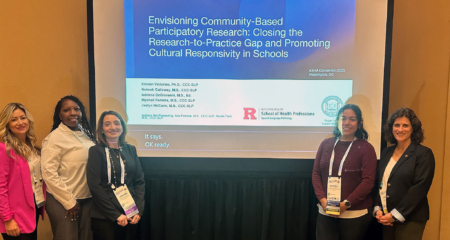
From left, Jaclyn McCann, Naimah Calloway, Adriana DeGiovanni, Mychell Ferreira, and Dr. Kristen Victorino.
Newark Public Schools (NPS) and Rutgers School of Health Professions presented a collaborative session at the 2025 American Speech-Language-Hearing Association (ASHA) National Convention, highlighting an innovative, community-centered approach to improving outcomes for students in urban school settings.
The session, “Envisioning Community-Based Participatory Research: Closing the Research-to-Practice Gap and Promoting Cultural Responsivity in Schools,” showcased the groundbreaking partnership between the Newark Public Schools Office of Special Education, Rutgers University, and school-based practitioners involved in the district’s REACH Grant Initiative.
Read the full press release
NBA Star Inspires SHP Students to Find Their Voice
Former player Michael Kidd-Gilchrist visited SHP to share how overcoming his stutter led him to advocate for others through his nonprofit, Change & Impact.
In a heartfelt classroom session, Michael Kidd-Gilchrist spoke candidly to first-year Rutgers Health students about growth, resilience and finding voice in the face of challenge. He recalled hiding his stutter early on—and then sharing it deliberately to help others feel seen. During the discussion he emphasized that communication goes beyond flawless speech and that vulnerability can fuel empathy, advocacy and change. Through his nonprofit work pushing for expanded speech-therapy coverage, Kidd-Gilchrist offered future clinicians a vivid example of how lived experience and professional passion can converge in service of health equity. Read the full article
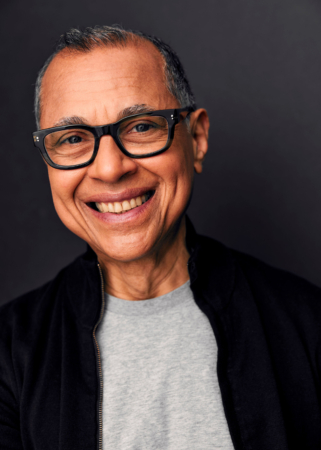
Dr. Jose Centeno was named a Fellow of the American Speech-Language-Hearing Association
Dr. Jose Centeno was named a Fellow of the American Speech-Language-Hearing Association at their Annual Convention in December 2024 in Seattle, Washington.
The ASHA website notes that, “Fellowship is one of the highest honors the Association bestows. To be awarded Fellow, the nominee must have made outstanding contributions to the discipline of communication sciences and disorders. The key word for this award is “outstanding:” the nominee must truly stand out among one’s peers. The term implies contributions that are significant and would be so regarded within and beyond one’s community or state.”
Dr. Centeno was recognized as an ASHA Fellow due to his years of research and publication in the areas of aphasia, bilingualism, stroke rehabilitation, and diversity. Dr. Centeno’s work is frequently cited by his colleagues and he is often a keynote speaker at conferences. We are so pleased to have him as a core and senior faculty member in the MS-SLP program.
NJSHA Distinguished Professional Service Award
Dr. Kristen Victorino was selected as the New Jersey Speech-Language-Hearing Association’s 2024 recipient of the Distinguished Professional Service Award. This award recognizes a NJSHA member who has demonstrated exemplary service in academics, research or as an administrator of speech-language and/or audiology services. She is being recognized as a leader who has contributed to the advancement of the profession on local, state and national levels. She will formally receive the award at the NJSHA Convention Awards Ceremony on May 8th.
Check out the contributions and activities of ASHA’s Hispanic Caucus. Kelly Pena, President of the Hispanic Caucus, shared that the Caucus creates a network where ASHA’s Latinx members connect to discuss intersectional issues, promote multicultural communities, and strengthen and advance multilingual services. Read more.

